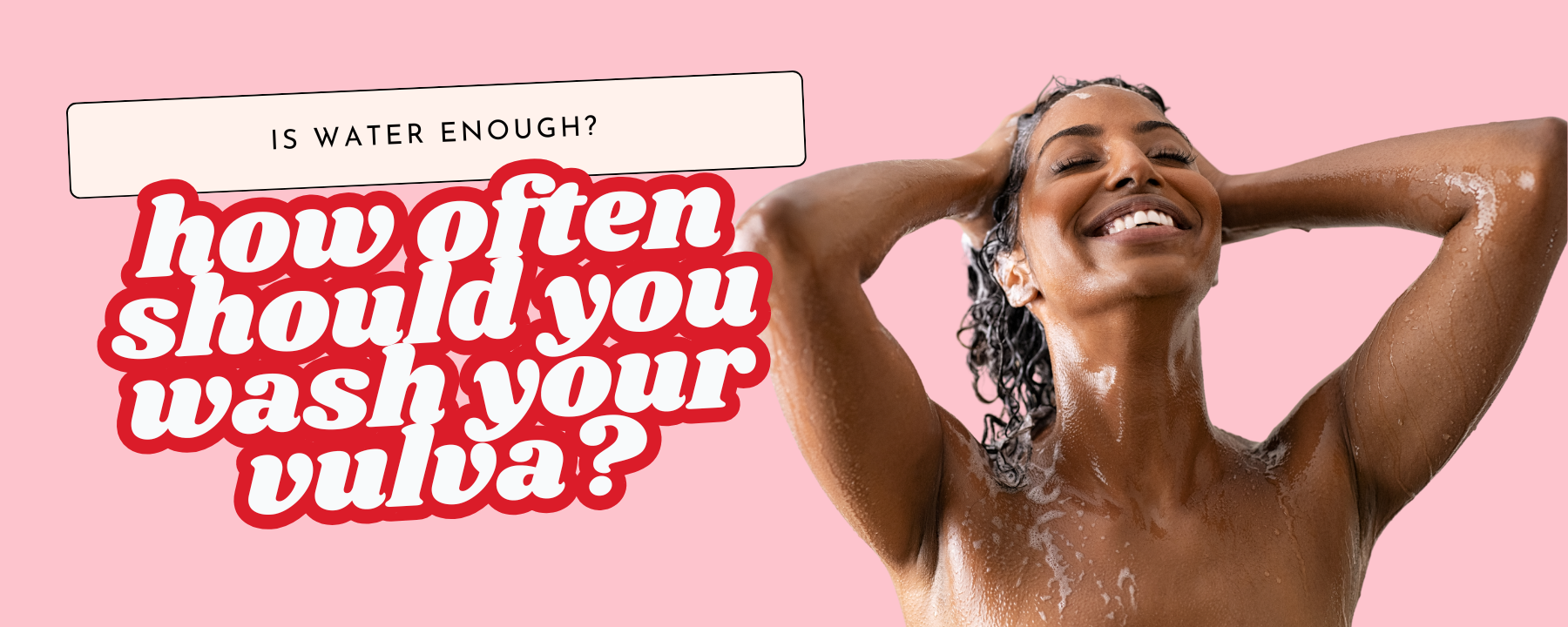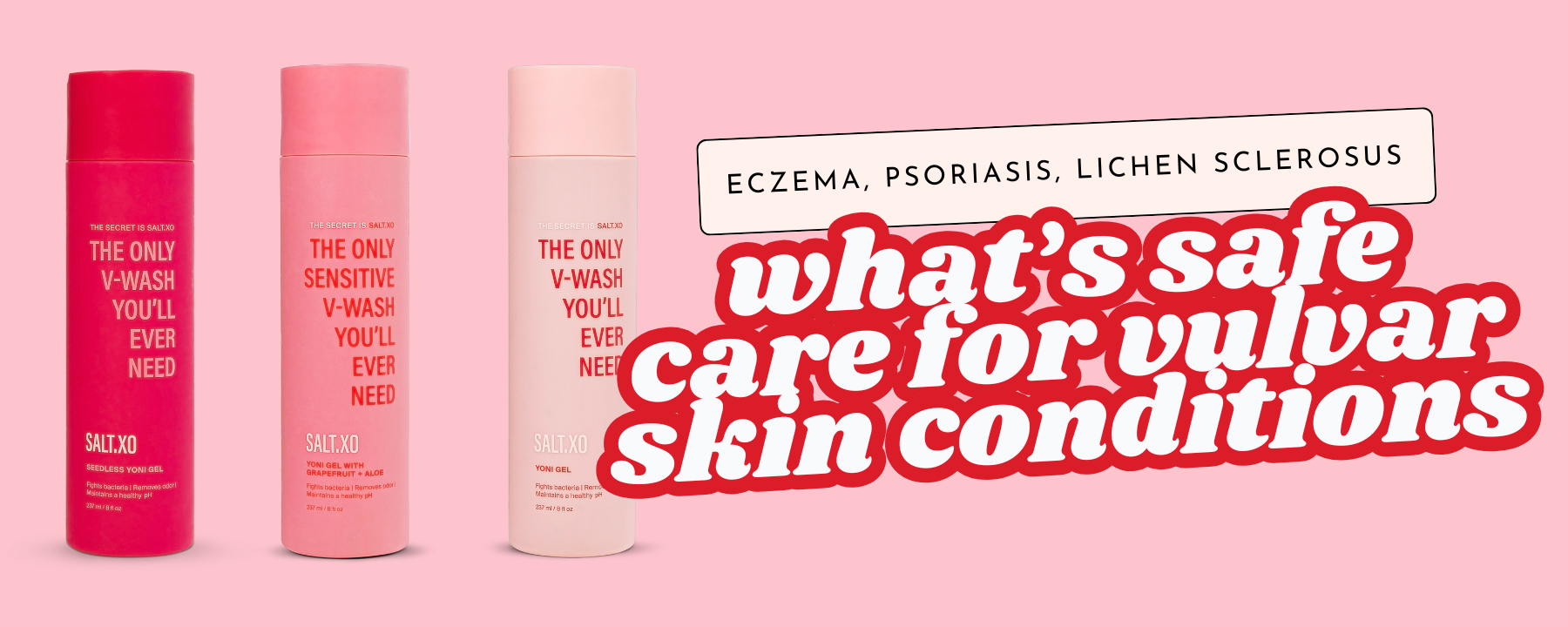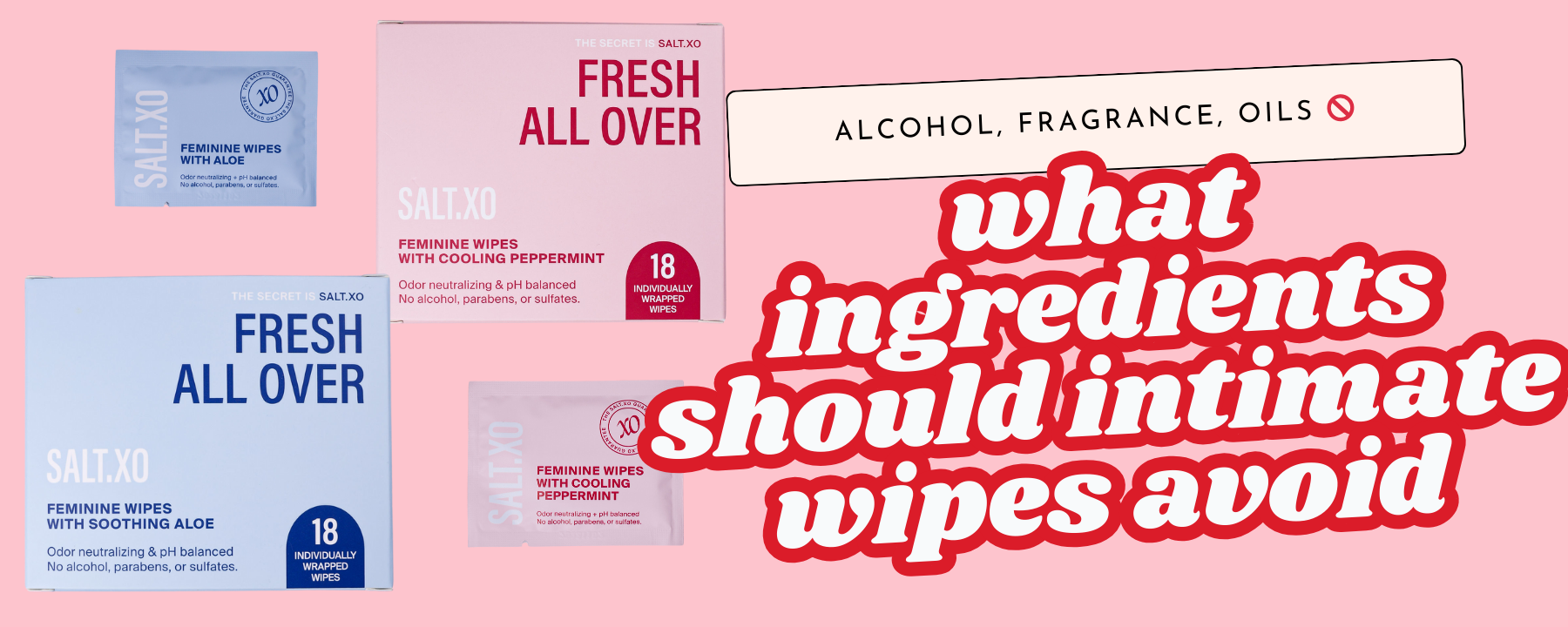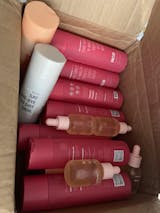How Often Should I Wash My Vulva? Is Water Enough?

Once daily is enough for most people—external skin only. Use warm water and clean hands. If you prefer a cleanser, choose a fragrance-free, pH-considerate wash and use it sparingly. After workouts, periods, or sex, do a quick external rinse and pat dry. Never douche or wash inside the vagina (it’s self-cleaning).
TL;DR
-
Frequency: 1× daily external wash; water is usually enough.
-
Cleanser: Optional—choose fragrance-free, pH-considerate, and use sparingly.
-
After sweat/period/sex: quick external rinse + pat dry.
-
Hard no’s: douching, perfumed sprays/powders, loofahs, harsh soaps.
-
Red flags: strong/foul odor, unusual discharge, fever, pelvic pain → see a clinician.
Why “external-only” matters
Your vulva (external skin) benefits from gentle cleansing. Your vagina (internal canal) is self-cleaning—washing inside or douching can disrupt balance and make irritation/odor worse. Keep your routine simple, gentle, and focused on the outside only.
Is water enough—or do I need a cleanser?
For most people, warm water alone is perfect for daily care. If you want that freshly-showered feel or you’re dealing with sweat, period flow, or sex fluids, a fragrance-free, pH-considerate cleanser can help—used sparingly.
Hands, washcloth, or loofah?
-
Best: Clean hands or a soft microfiber washcloth (washed hot, replaced often).
-
Skip: Loofahs/exfoliating tools—they can harbor bacteria and create micro-abrasions on thin, sensitive skin.
The 60-Second External-Only Routine
-
Wash your hands.
-
Rinse the vulva (external skin only) with warm water.
-
Optional: Lather a pea-size amount of a fragrance-free, pH-considerate cleanser on your hands, then gently cleanse the folds.
-
Rinse thoroughly.
-
Pat dry—don’t rub.
-
Put on breathable underwear and change damp fabrics quickly.
Comparison: Water vs Gentle Cleanser vs Loofah
|
Method |
Pros |
Cons |
Best Use |
|
Water only |
Lowest irritation risk; simple; effective for daily care |
May feel insufficient after sweat/period/sex |
Daily baseline |
|
Gentle, fragrance-free wash |
Removes sweat/fluids; keeps external skin fresh |
Overuse may dry/irritate |
Periods, post-workout, post-sex |
|
Loofah/exfoliator |
None for vulvar skin |
Bacteria harborage; micro-abrasions; irritation |
Avoid |
Freshness without friction (periods, workouts, sex)
-
Periods: Change pads/tampons on time; do a quick external rinse; pat dry.
-
Workouts/swim: Change out of damp clothes ASAP; rinse if you can; pat dry.
-
Sex: External rinse; skip internal cleansing; use water-based lube next time if friction is an issue.
Sensitive skin scenarios
If you have eczema, psoriasis, postpartum dryness, perimenopause dryness, or frequent irritation, stick to water-only most days or minimal cleanser use; patch test anything new on non-genital skin first. For persistent symptoms, see a clinician.
When odor means “see a clinician,” not “wash more”
-
Strong/foul (“fishy”) odor with thin gray/white discharge
-
Thick white discharge with intense itch/burn
-
Green/yellow discharge, pelvic pain, fever, or bleeding outside your period
These deserve evaluation. Washing more won’t fix root causes; diagnosis will.
FAQs
How often should I wash my vulva?
Once daily is enough for most. Add a quick external rinse after sweat/period/sex.
Is water enough?
Yes—for most people, water alone works well. If you prefer a cleanser, make it fragrance-free and pH-considerate, used sparingly.
Should I use a loofah?
No. Use clean hands or a soft microfiber cloth only.
Can overwashing cause odor?
Yes. Over-cleansing can dry/irritate skin and disrupt balance—ironically increasing odor complaints.
What should I avoid?
Douching, perfumed sprays/powders, harsh soaps, alcohol, strong essential oils, and loofahs.
Medical disclaimer: Educational only; not a substitute for professional medical advice. If you have symptoms or concerns, consult a qualified clinician.





Comments